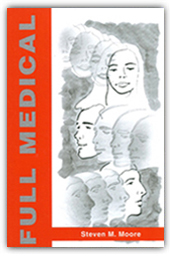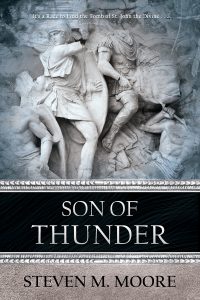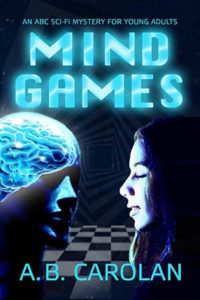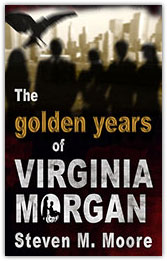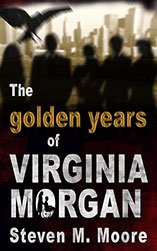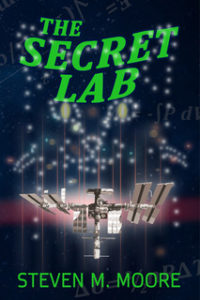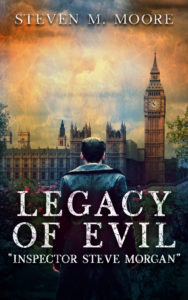Books I won’t read…
June 4th, 2025The list of books you’ll find on my “Steve’s Bookshelf” web page at this website is representative of my reading choices but far too short to cover them all. Consequently, I decided it might be interesting to add about what books I won’t read. (Of course, if you read all my posts—why not?—you might have a better idea about what I will read!)
I rarely read fantasy, not even sci-fi that’s nearly fantasy. The boundary between fantasy and sci-fi is a blurred one, but the “magic” in AB Carolan’s Mind Games differs greatly from JK Rowling’s “Harry Potter” tales.
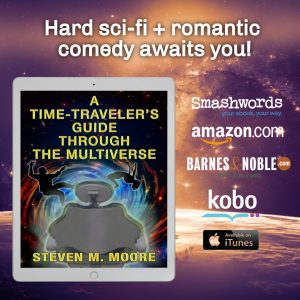 I avoid romance and erotica stories. I don’t mind either in a mystery, thriller, or sci-fi story, but they have to take second place. My novel, A Time-Traveler’s Guide through the Multiverse, is sci-fi with rom-com elements; in other words, it’s not The Time-Traveler’s Wife.
I avoid romance and erotica stories. I don’t mind either in a mystery, thriller, or sci-fi story, but they have to take second place. My novel, A Time-Traveler’s Guide through the Multiverse, is sci-fi with rom-com elements; in other words, it’s not The Time-Traveler’s Wife.
I avoid like the plague books written by famous or infamous celebs, especially the tell-all ones. I just don’t care about their miserable lives. Of course, I mean by “celebs” those generally mentally disturbed people with big egos whose lives and exploits more generally appeal to non-readers who are bored with their own lives. (I don’t know what percentage of the population fits in that category, but I do know that mind-numbing Hollywood blockbusters and streaming video have added to their numbers.) I will read about Enrico Fermi, Alan Turing, or the warrior popes; at least they’ve actually done something noteworthy.
 In fact, I’ll also read history and politics as long as they’re as accurate and as fair as they can be. Historical fiction is a bit iffy because it tries to fill in the blanks (that’s the fictional part, of course), but it often fits in the mystery or thriller category too, like my Son of Thunder.
In fact, I’ll also read history and politics as long as they’re as accurate and as fair as they can be. Historical fiction is a bit iffy because it tries to fill in the blanks (that’s the fictional part, of course), but it often fits in the mystery or thriller category too, like my Son of Thunder.
What really turns me off sometimes is how authors pimp their books. I stopped reading James Patterson long ago. (It seems he doesn’t write much of anything original anymore without a co-author, so you have to wonder.)
When celebs try to write fiction and it doesn’t work for me, I also can get upset. Jake Tapper is an example. In his fiction, he can’t decide if he’s a CNN pundit or a true author. (I think he was quite good as a newsman until recently, by the way! Jim Acosta might have been better, though.) Using his bully pulpit on CNN to frequently pimp Original Sin is beyond the pale, though, and I’m surprised CNN allows that. (Of course, CNN is going downhill just like MSNBC and CBS, while Fox News is already in the cesspool.) Yes, Jake, we knows the Dems blew the 2024 election, and Biden should have kept his 2020 promise to be a one-term president, a transition to the new guard. But we only needed that disastrous debate and old Joe’s stumbling about upon leaving the Marine chopper to confirm that running again was a mistake; there should have been a full primary, and then having David Plough et al preparing for four years like Trump’s handlers! Jake’s book might have some use as a record of all the mistakes made by the Dems, I suppose. It’s just that I hate to see Jake pimping it almost everyday. That’s not advertising; it’s akin to brainwashing.
I know which books I don’t want to read the same way that I always do: I read the blurbs and “peek inside,” either online or at a bookstore, to see if the author can write something original in a professional manner. Sometimes I even glance at the book’s cover. (Celeb books often have awful covers, and most covers for books published by the Big Five publishing conglomerates are horrible.) You can use this tactic too. It’s all about being a smart consumer, isn’t it?
***
Comments are always welcome…if you follow the rules on the “Join the Conversation” web page at this website.
Freebies. You don’t need much energy to get them here! Just go to the list of free PDF downloads on the “Free Stuff & Contests” web page at this website and click away. You’ll find a lot of short fiction in collections (short stories and novellas), two complete novels, and my course on “Writing Fiction.” Those few clicks are a great way to get to know me and my writing. Of course, my published books (over thirty now) are all available as inexpensive ebooks at various online book dealers (see the list on the “Books & Short Fiction” web page).
Around the world and to the stars! In libris libertas.

